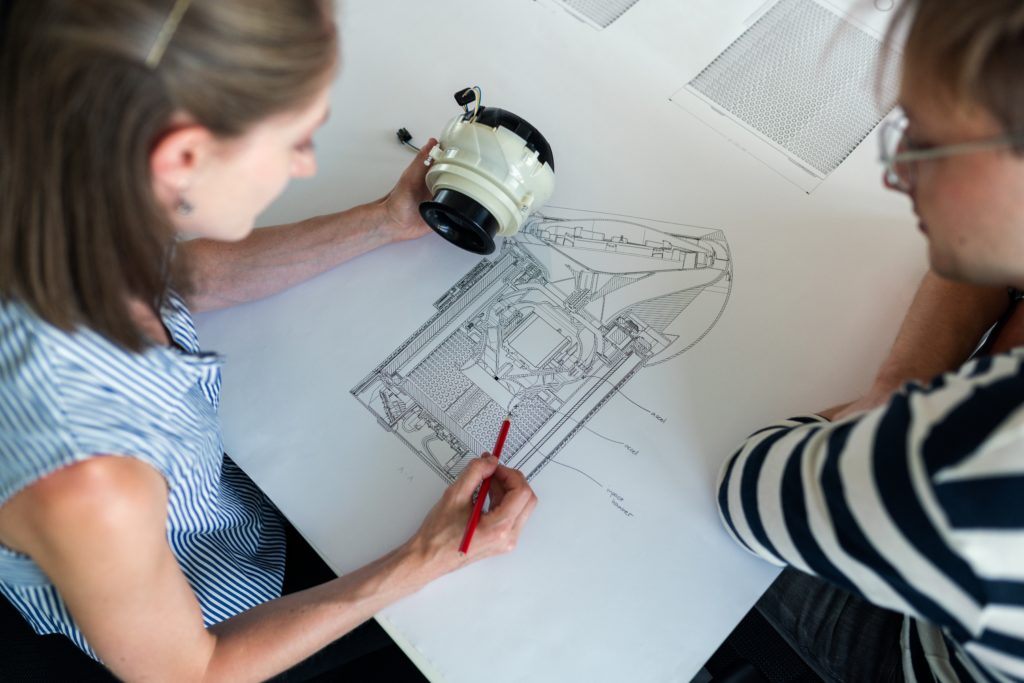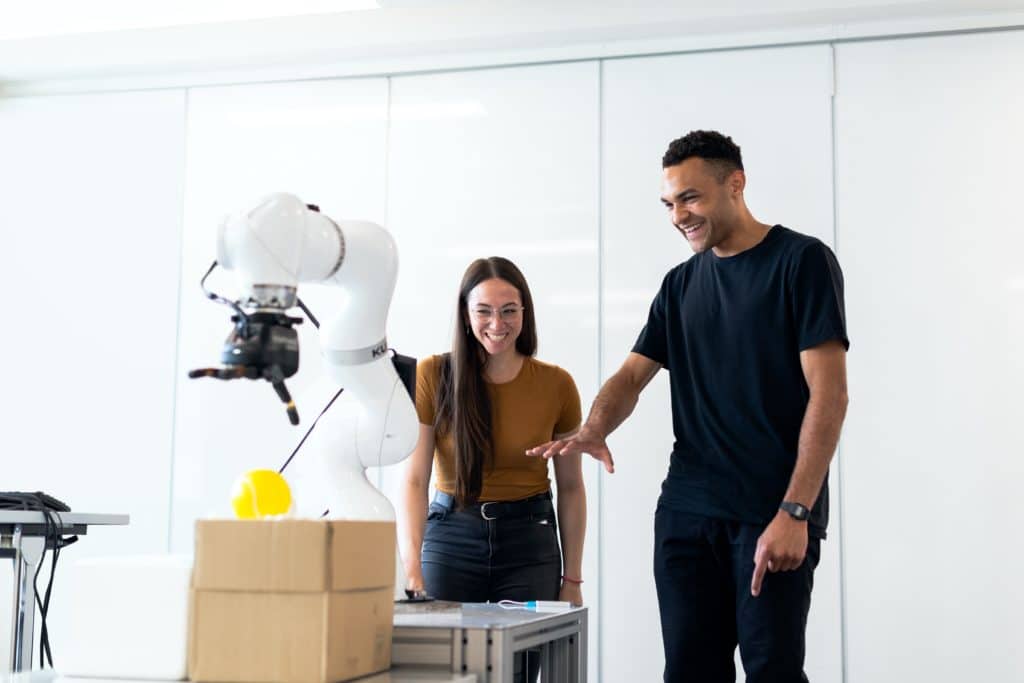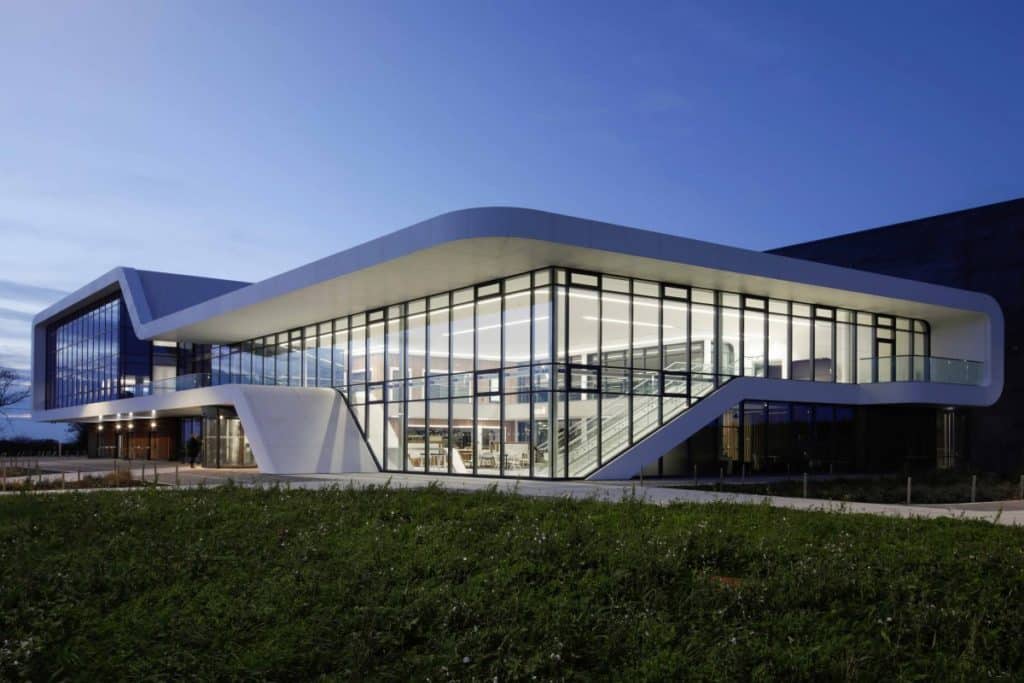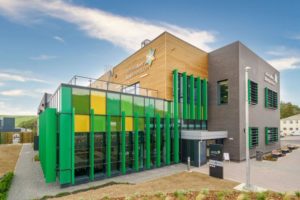
Considerations for
Innovation Strategy
in Wales

Foreword
Innovation is a much used and sometimes misunderstood term. At its heart, innovation is about creating value. And that value might be cultural or social as well as economic. Innovation is not just about new technologies and scientific breakthroughs, it’s a social and collaborative process.
Prof Rick Delbridge FLSW
Research shows how central innovation is to economic performance but also how it is crucial to addressing societal challenges and improving public services. Corporate R&D is a crucial element in any innovation ecosystem, but entrepreneurship and small businesses, the public and third sectors, universities and policy makers are also important. It’s how these components cohere and complement each other that is key. Good policy cannot create vibrant ecosystems but it can assist and support innovation.
In these roundtable discussions, we sought to explore ideas that might assist Wales realise its potential as an innovation nation.
Introduction

Over the last eighteen months, the Society has convened six roundtable discussions, bringing together innovation experts, practitioners and leaders to help inform and improve innovation policies and practices in and for Wales. This was a timely programme of activity given the ongoing development of a new Innovation Strategy for Wales that is being undertaken by Welsh Government.
The objective of the programme was to explore key issues with those operating in the Welsh innovation ecosystem and to learn from others beyond Wales in order to contribute to the thinking behind the new Innovation Strategy. The contribution of the discussions and the reports arising from them was recognised in September 2022, when the Society was invited to co-host and co-convene a roundtable discussion by the Minister for the Economy and the Leader of Plaid Cymru, to feed directly into the final stages of the consultation on the Draft Innovation Strategy for Wales.
Alongside specific developments in Wales, the roundtables reflected on the highly significant recent developments at UK-level, including the UK Innovation Strategy; the HM Treasury’s Comprehensive Spending Review 2021 which made a strong commitment to increasing R&D funding to £20 billion by 2024-25; and the UK Government White Paper on Levelling Up which underlined the ambition that an increased proportion of government spending on R&D over the next three years is invested outside the Greater Southeast of the UK. HM Treasury’s Autumn Statement 2022 saw the UK Government recommit to an the uplift in investment in Research and Development activity, representing an increase in spending of 35% from the 2021-22 levels. The creation of a UK government Department for Science, Innovation and Technology in the last few weeks is further recognition of the importance of research and development to the economy and society.
These UK level developments present a relatively promising context for research and innovation activity. However, as a recent report, Scoping the Future of Innovation Policy in Wales made clear, the loss of access to EU Structural Funds, which have been significant in supporting the development of Wales’ RDI capacity and collaborative potential, and the lack to date of equivalent replacement funding schemes within the UK Government’s Shared Prosperity Fund programme is a major challenge for innovation in Wales in the next few years. In the future, actors in the Welsh innovation ecosystem are likely to need to be more effective in securing competitive funding and the ways in which key funders including UK Government and UKRI conceive and deliver in support of place-based innovation will be key.
In the future, actors in the Welsh innovation ecosystem are likely to need to be more effective in securing competitive funding and the ways in which key funders including UK Government and UKRI conceive and deliver in support of place-based innovation will be key
The roundtables were chaired by Professor Rick Delbridge FLSW in his capacity as Special Advisor on Innovation to the Society’s President. Discussions were conducted under Chatham House rules. Core participants were selected to ensure a mix of practitioners and researchers, a pan-Wales perspective, and a good gender balance. A number of the core group brought experience of UK-wide policies and initiatives, and a view from regions beyond Wales. Each of the roundtables focused on a theme and brought in experts from places and projects that do innovation well in order to share their knowledge and experience, and to prompt reflection on how Wales could improve its approach to innovation. This comparative approach created an environment for knowledge exchange. The pattern of regular roundtables and close consultation with the core group supported the development of trust and provided a space for practitioners and innovation experts to reflect openly on their personal experiences and express their views on the strengths and weaknesses of the innovation landscape of Wales, and consider what the next Innovation Strategy for Wales would need to address.
The discussions considered the following themes:
Full reports from the discussions are available by clicking the titles.
The key considerations for the further development of innovation activity in Wales that emerged from the discussions were:
- The need for a new narrative of innovation – and recognition of the potential power of this narrative
Recognising that additional capacity is needed to invigorate and develop innovation activity in Wales
The development of opportunities to support and stimulate soft infrastructure, and intangible capital
The potential of adopting an innovation commons approach, which could help the emergence of distinctive and collaborative innovation culture in Wales
Addressing Wales’ implementation gap, that is delivering in practice on the potential of the nation
The need for new narrative of innovation in Wales

The need for a new innovation narrative for Wales was a recurring theme in the roundtable discussions. There was a consensus that a compelling and inclusive ‘story’ would share strengths and successes, be a catalyst for activity, promote the innovation agenda, and inspire the nation. The narrative should both draw on, and inform, the values and aspirations at the heart of an Innovation Strategy for Wales.
The Innovation Wales Strategy (2013) emphasised the importance of ‘promoting a culture of innovation’ and that developing a better narrative around innovation in Wales would contribute to strengthening this culture. In 2022 there remains a need for strengthening the narrative and improving the visibility of the innovation activity that is taking place in the nation; there are pockets of strength and successes that can be given greater prominence. There is a balance to strike, however, as some of the successes are relatively modest in comparison to innovation activities elsewhere in the UK. Nonetheless, an innovation narrative that both captures and builds from Wales’ current strengths would be a valuable component of the strategy and its implementation.
Small nations can possess the advantage of a strong sense of identity and distinctiveness. They also have considerable potential to be agile – it can often be easier to convene people and organisations from across the nation, find common cause, and foster collaborations. Activities in small nations need not necessarily be limited in ambition, nor in impact. The goals of the Wellbeing of Future Generations Act and the National Wellbeing Indicators provide a framework for the conceptualisation of long-term and clearly defined mission challenges which could contribute to improving the lives of the people of Wales and provide intervention models that could be adopted in other nations and regions.
Activities in small nations need not necessarily be limited in ambition, nor in impact
One of the strengths of small nations is the capacity to develop a coherence of action across key stakeholders, which can further strengthen and promote a clear narrative of innovation. The Innovation Strategy for Wales needs to capture some of the potential ways in which actors beyond Welsh Government might contribute to this national agenda. For example, the triple helix framing or the MIT REAP approach both identify the key roles played by a variety of actors in innovation ecosystems. Wales could project itself as a crucible of innovation in its broadest sense, to better secure investment and to encourage and support innovation activity. The narrative would thus need to recognise the wide range of actors – and potential actors – and demonstrate the impact of innovation while being forward-looking and suitably ambitious about the future. This would contribute to an increased awareness of the potential of innovation, and engender a sense of belonging and inclusion.
The Capacity for Invigorating Innovation in Wales

The innovation system of Wales does not currently have capacity in terms of infrastructure – neither hard nor soft – to win sufficient funding through competitive bids, nor absorb a significant uplift in external investment.
There is a need for a continuing intervention to create a stronger base in terms of:
- People and skills,
- Physical infrastructure and facilities
- Building in the ability to scale up to absorb future growth in grant capture.
Wales would benefit from an integrated talent strategy, to address issues regarding skills, the pipeline of talent progression, talent retention, and encouraging businesses and organisations to innovate. Skills and capabilities must be combined with capacity and effective practices to deliver. The European Union’s Smart Specialisation programme of regional development provides a wide range of models, good practice and lessons learned, from which Wales could develop its own approach to the deployment and implementation of innovation strategies and plans.
Wales would benefit from an integrated talent strategy, to address issues regarding skills, the pipeline of talent progression, talent retention, and encouraging businesses and organisations to innovate
A key element for successful stimulation and delivery of innovation is well-developed hard infrastructure, with innovation districts, knowledge quarters and science parks widely seen as having the most potential. But false beliefs in ‘build it and they will come’ (remember Techniums?) must be avoided and spaces must be designed and curated to deliver on the specific needs and opportunities within the regions of Wales.
M-Sparc, AberInnovation and sbarc|spark demonstrate the potential of university-led science parks, connecting academic research and businesses, focusing on specific strengths, and providing business support and incubation. Both M-Sparc and AberInnovation are beyond the south Wales M4 corridor and are important interventions for supporting high skilled and well-paid jobs in rural Wales and the Welsh language heartlands. Both parks are rooted in their community, promote retention and return of talent, drive innovation and stimulate regional economic development. The recently opened sbarc|spark building on Cardiff University’s Innovation Campus in the centre of the capital provides a striking new facility dedicated to interdisciplinary research and cross-sector innovation activity, co-locating university researchers and organisations from the public, private and third sectors. In our roundtable discussion, the possibility of developing a network of such initiatives to both build visibility and ‘sharpen’ Wales’ innovation offer was discussed.
The discussion reflected that the distinctiveness of Wales’ science and innovation parks, and the better work life balance offered by Wales over bigger cities elsewhere in the UK, might be attractive to entrepreneurs as they mature and start families. To maximise this draw to be better able to attract such scale-up businesses, Wales needs the resources and support skills needed for growth, starting with funding for scale ups.

sbarc|spark
Opened in 2022
World’s first social science park
Science parks provide a mechanism for making connections. The importance of developing and nurturing soft skills such as mutual trust, making connections and crafting collaborations were a recurring theme in the roundtable discussions. These skills are deeply intertwined with each other; hence they are best to be considered as a whole, rather than separate parts. For example, it was emphasised that being engaged in innovation-related formal or informal projects that required collaboration and sharing of information, provided the opportunity to share contacts and identify potential new connections and partners, both within and beyond their own sector, and that working together in this way increased trust amongst partners, further increasing opportunities for innovation. The less tangible nature of these soft skills makes them seen as more of the ‘cultural side of innovation’, where investment in creating opportunities, rather than products is a necessary and integral part of stimulating the ‘innovation mindset’. The discussion also considered the example of the Manchester Innovation District.
Case study
The University of Manchester is redeveloping the old UMIST site in the city centre to create mixed-use city-centre neighbourhood and innovation district. Developing this space in an area recognised as one of Europe’s leading innovation ecosystems provides many opportunities to further grow interactions, partnerships and activities. There can be disbenefits to these sorts of locations, as it can be a challenge to create a wider sense of belonging and inclusion. The role of the university as convenor and ‘events manager’ is important, as they have the potential to create opportunities and to bring a diverse range of actors together. Further details of the Greater Manchester Innovation Plan are available here.
Creating Connections and Collaboration

The themes of connection and coordination seemed to be particularly pronounced and relevant for the Welsh context, given that one of the key challenges for Wales identified within discussions was a lack of connectivity between innovation activities, and visibility of such activities, especially outside of Wales.
Communication and connections between sectors within Wales are patchy, and there are relatively few opportunities to create new links, nurture relationships, build trust and exchange knowledge. It can be difficult for sectors and organisations beyond higher education to identify potential opportunities and collaborations. The recently launched Wales Innovation Network (WIN) provides foundations for Welsh universities to strengthen and develop collaborative projects across Wales.
In Scotland, which hosts a higher number of research-intensive universities, there has been major effort over almost two decades put into developing formal networks to promote collaboration within HE, and also across sectors, such as the recently created Research Innovation Scotland (RIS).The Scottish research and innovation system has a dense grid of interconnected networks which links universities, industry, government and the public sector. Research Innovation Scotland functions as a connector within this network, creating links between the diverse networks and research pools, and catalysing intersectionality. Within this system there are multiple opportunities to develop connections. Individual networks can clearly explain their remits, which in turn sends a positive message to potential stakeholders about openness and readiness for collaboration.
One potential lesson for Wales is to consider the importance of making access to the Welsh R&I ecosystem straightforward to navigate and access. A network of networks within Wales would contribute to realising the potential of knowledge exchange and collaboration across sectors, and the Commission for Tertiary Education and Research will have an important role in facilitating improvement in this respect.
It was acknowledged that a cultural shift and a different mindset are required for better understanding of the role of intangible soft skills in fostering innovation, particularly amongst policymakers, so that more appropriate tools and policies could be used. It was also observed that such a shift is already happening with the practise of challenge-driven approach in innovation policy.
City growth deals are a mechanism that can bring high level ambitions and missions and moonshots ‘down to earth’, to activities supporting innovation at a size and setting that is understood by a wide range of actors, who can see and access opportunities for themselves
Wales’ four city growth deals, with their locally focussed agendas which bring together a range of actors including universities, local authorities, health board, Welsh and UK governments, have a key role in developing connections and collaboration. The discussion considered a case study of the Cardiff Capital Region, which has a clear understanding of its role as a connector of people, their ambitions and opportunities, and as a catalyst for continuity investment, underpinned by a focus for creating the conditions where businesses and people are best equipped to embrace the future. Its cluster groups operate with a networked leadership and, along with internal strengths, there are emerging areas of potential at the intersections of the clusters. City growth deals are a mechanism that can bring high level ambitions and missions and moonshots ‘down to earth’, to activities supporting innovation at a size and setting that is understood by a wide range of actors, who can see and access opportunities for themselves.
Case Study: Cardiff Capital Region
The Cardiff Capital Region (CCR) has been developing a portfolio approach to the support for innovation in the region. This includes the identification of key priority clusters (FinTech, MedTech, Compound Semiconductor, Cybersecurity and Creative Industries) with an increasing emphasis on broadening the benefits through supply chains and skills impact, the development of an innovation investment fund and the creation of a Local Wealth Building Challenge Fund.
The Challenge Fund has been designed and delivered in a partnership between the CCR and Cardiff University. The fund is designed to promote scalable business opportunities through the development of innovative solutions to public service delivery challenges, leveraging the procurement of innovation to create new market possibilities.
For example, the Greater Manchester Combined Authority Civic University Agreement is a joint action plan between five regional universities and the office of the mayor of the Greater Manchester Combined Authority. The ambition of the agreement is to break down barriers and improve the lives of residents of the area. Extensive research was undertaken to determine the priorities, including a survey that sought to understand the key socio-economic concerns of residents, as well as whether and how they value the universities in the region. The agreement recognises the uneven economic geography and disparities in life expectancy within the Greater Manchester region, acknowledging that poor health leads to poor productivity. The agreement provides opportunities for collaboration and coordination across the universities, and also with external partners. For example, each of the universities have both an enquiry point for small businesses and a service to help enterprises understand their needs, directly supporting organisations to connect with research and expertise.
The Welsh HE sector also has significant potential to support innovation and economic development, and innovation in the public sector, across Wales. The Wrexham Glyndŵr University Civic Mission Partnership Strategy is an example of a university using its position to enable collective action in its locale.
Universities are research generators, and are also enablers, conveners and catalysts; their civic mission activities can help to support stronger innovation ecosystems. But in order to maximise this capability, universities may need to change their approach, and potentially invert usual practice. For example, in the current UK funding context where Innovate UK is playing a much more significant role than previously, the university prioritization of research-led innovation may need to be revisited. Indeed, questions have been raised about Welsh universities’ capacity to deliver innovation-led research. Activity that is informed by societal challenges, such as climate change and ever-growing health and social care demands, can provide the impetus for new ways of undertaking research and innovation.
The intersection of civic mission and innovation is a space to identify problems and work to develop solutions. Wales’ Civic Mission Framework is an important first step, and has supported the development of a number of initiatives across the sector. The establishment of the Commission for Tertiary Education and Research provides the opportunity to align aspects of HE civic mission with innovation activity, and there are examples of successful implementation of this approach.

Wrexham Glyndŵr University and Civic Mission Partnership Strategy

The aim of the civic mission of Glyndŵr University and its partners is to help end social inequalities in North Wales by 2030. This ambitious goal was informed by consultations with thirty leaders from public, private and third sector across North Wales region. The University uses its position to create and maintain connections between partners to research, develop and deliver solutions.
New approaches will be co-created. tested and delivered in the three core areas of:
- leadership and governance,
- building community resilience, and
- keeping well.
The university established the North Wales Public Service Lab which offers expertise in whole system thinking, and provides space for conversations, peer support and mutual encouragement for leaders.
The North Wales Social Care and Well-being Improvement Collaborative has enabled six local authorities, the local health board and other partners to work together better and improve services.
However, too often, those interested in pursuing innovation are unsure of how to engage with the innovation ecosystem. Capacity for innovation within Wales’ SMEs, public sector and third sector organisations is often limited, and although there is appetite to innovate there are often constraints in terms of resource. This is a further reason why the innovation strategy needs to engage with the wider set of actors that constitute the national innovation ecosystem. The discussion that considered innovation in the third sector also highlighted the need for better sign-posting of resources and opportunities, making it easier to know which organisations or key individuals are receptive to engagement. Universities were suggested as important partners for the third sector in designing, implementing and potentially evaluating new programmes and solutions, which if successful, could be replicated on a wider scale. It was acknowledged that the institutions can be impenetrable to those outside, and that this needs to be addressed.
A Wales equivalent of Scotland’s Interface initiative could facilitate the development of connections between industry, the third sector and Wales’ HE, FE and research sectors. It could support economic and societal benefit, stimulating businesses and third sector organisations that want to access research and expertise within the universities, and encourage the research community to be well placed to respond to these requirements.
The potential of an innovation commons approach - a distinctive innovation culture for Wales
The innovation commons is a new theory of innovation which considers the initial development of new innovative activity. Innovation commons emphasises the processes of cooperation and resource pooling as preconditions for how classically understood industrial innovation begins to happen. The concept of innovation commons is thus defined as a space and a means for sharing data, knowledge and information. This includes where value of data and knowledge has yet to be determined, in order to facilitate learning and discovery. The innovation commons space also provides opportunities for venture capital to join collaborations at an early stage.
The Innovation Commons
At the heart of innovation commons theory is the recognition that in order for innovation to happen, resources need to be shared in a space (or via a network or institution) that enables people to cultivate connections and trust, and to play with the ideas in a more spontaneous way. One of the key ingredients of intangible capital within innovation commons is long term high trust relationships between individuals, which is key for collaboration. For example, lessons learned from EU Smart Specialisation programme (an innovation-led territorial development) indicates the disparity in the level of trust between various regions within EU, which affected the ability of low-level trust regions to progress with the development and implementation of innovation activities.
The commons approach creates a space for the intersection of domain-specific knowledge (‘vertical knowledge’) with place-based and local information (‘horizontal knowledge’), providing a mechanism for engaging public sector services and third sector organisations in innovation activities. As the public sector often has early sight of big problems, bringing their knowledge into an innovation commons space can inform and facilitate the search for impactful solutions. The proximity of many third sector organisations to their locality and communities was also agreed to offer the vast potential and opportunities for third sector to not only actively promote, but also involve communities in the process of innovation. However, third sector organisations are currently operating in an environment of relatively low resource and high demand for their services, and this can often impact their capacity to consider opportunities to innovate. Mechanisms are needed to support their involvement, which could enable the sharing of their specific and located knowledge which could has potential to inform the formulation of problems and challenges, and thus help prompt more impactful possible solutions. It was also noted that many innovative ideas stem from ‘down time’ rather than salaried responsibilities, and making the right space for people to innovate and collaborate was seen as a major challenge. The accessibility and inclusiveness of this commons space was also agreed to be an important consideration in order to help catalyse innovation with potential for wide social benefits.
The commons approach creates a space for the intersection of domain-specific knowledge with place-based and local information, providing a mechanism for engaging public sector services and third sector organisations in innovation activities [...] and facilitate the search for impactful solutions.
Open-source data is another important resource for unlocking the potential of the innovation commons, and the public sector, as a repository of data, could work to improve access to this valuable resource. The arguments for opening up data to underpin and ‘feed’ innovative activity has been the subject of valuable recent academic research. Investment in the skills, data, and connectivity of innovation commons could usefully complement and extend the potential impact of tailored and targeted investment in specific clusters of innovation. The innovation commons space also affords a stronger role for social science and humanities researchers within innovation activity to help address societal challenges.
The overlap of the commons approach and challenge/ mission driven innovation was considered in the discussions. This approach shares many aspects with the sustainable principles of the ‘Five Ways of Working’ of public bodies within the Wellbeing of Future Generations (Wales) Act 2015:
- Long term,
- Integrated,
- Involvement,
- Collaboration,
- Prevention,
and therefore has potential to align well with wellbeing objectives and aims in Wales.
Participants raised the principle of whether innovation could or should be designed or directed, and agreed that it was important that a balance is struck between directed and open opportunities. The discussion also reflected that the current metric-driven systems of funding bodies can be a barrier to the commons approach, and that a shift in funding culture to provide more space for failure – and chances to learn and improve – in innovation activity would be welcome.
It was agreed that developing a broader portfolio of innovation activity would spread the risk – including initiatives that would be likely to generate returns on investment as well as those that could be riskier investments would provide balance and a space for opportunity.
Conclusions
In thinking holistically about an innovation ecosystem it is necessary to consider its capacity to absorb and create knowledge and the richness of its commons alongside locally developed innovation catalysts and priority clusters.
What is crucial is how these come together to produce a vibrant and effective system, underpinned by effectual and appropriate institutions and policies, and animated by a compelling narrative. Drawing on this framing we can identify a number of key considerations for Wales’ future innovation strategy.
- There is a need for a better narrative of, and for innovation, which captures and contributes to a distinctive culture of innovation. Wales’ narrative of innovation should be grounded in reality and reflect the values and level of ambition needed to see a step change in innovation culture and innovation activity.
- Investment is required to address capacity and capability issues, coupled with strategies for developing, attracting and retaining talent. The EU’s Smart Specialisation programme of regional development provides a wide range of models, good practice and lessons learned from which Wales could develop its own approach
- Better coordination of opportunities, facilitation of connections, and recognition of the importance of intangible assets, including clusters and their wider impact, could help to catalyse activity. The innovation ecosystem needs to be understood as a heterogeneous set of actors and the strategy needs to reflect how these will need to interact.
- The potential offered by the Innovation Commons to do things differently, and bring the Five Ways of Working into innovation practice. Explicit acknowledgement of the commons as a central component of innovation strategy could offer a window to reframe Wales’ innovation narrative and to create a new story about how innovation happens in Wales, as well as the results of that innovation.
A National Innovation Body may be one mechanism to address the issues raised in this report, for example supporting the sharing of effective practices, the promotion of an ambitious innovation narrative and the convening and coordination of collaborations. It could also have a role to support retention of talent and to instil an innovation commons culture within the innovation system. Working alongside Welsh Government and its divisions, it would maximise the potential for innovation activity.
Authors: Dr Justyna Prosser, Dr Sarah Morse and Professor Rick Delbridge FLSW
policy@lsw.wales.ac.uk
February 2023








